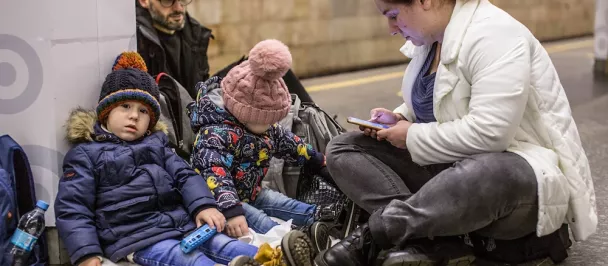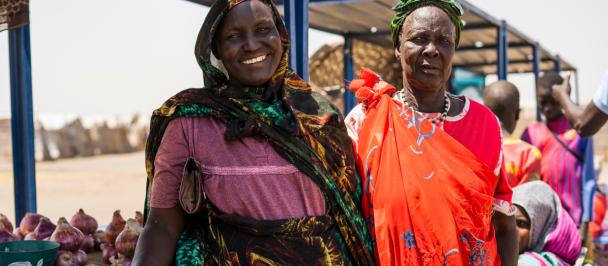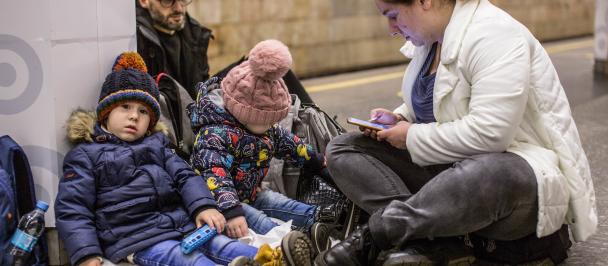Statement by Asako Okai at the Spotlight Session for the Global Refugee Forum: Innovation for Refugee Livelihoods SDG Impact Accelerator hosted by Government of Turkey and UNDP, Palais de Nations, Geneva
Global Refugee Forum: Innovation for Refugee Livelihoods SDG Impact Accelerator
December 16, 2019
Excellencies, Distinguished participants, ladies and gentlemen
It is my great pleasure to welcome you today to discuss role of private sector and innovation for refugee livelihoods and specifically SDG Impact Accelerator initiative of Government of Turkey and UNDP, that constitutes and important good practice in Turkey and beyond.
Private sector is an indispensable partner for addressing Agenda 2030, which is unprecedented in its complexity and inter-dependence. The scale of funding and technical support required to achieve the ambitious of the SDGs is far beyond the scope of individual governments and multilateral funding agencies.
Globalization is an inevitable phenomenon that has brought the world closer through the exchange of goods and products, information, knowledge and culture. Over the last few decades, the pace of this global integration has become much faster and more dramatic because of unprecedented advancements in information and communications technologies and logistics, as well as increasingly freed movements of capital, investments and goods.
The Sustainable Development Goals (SDGs) acknowledges the complexity of our world and highlights the need for more comprehensive development solutions. The wide variety of coverage of different topics requires diverse actors to join hands and pool financial resources, knowledge and expertise. If the challenges faced are interlinked and interdependent, then the way we examine them and the solutions we develop must be integrated and interdependent.
In this respect, UNDP advances integrated solutions across the entire SDG agenda, catalyzing private sector resources, market-based innovations and financing-mechanisms.
We are aware that this is not an easy task. Therefore, as part of the ‘Next Generation UNDP’, we are pushing the boundaries and testing solutions that lead to impact. UNDP’s priority is to support the governance of public and private finance to the SDGs.
Another way UNDP is tackling the challenges of implementing the SDG is through the launch of the world’s largest and fastest learning network of 60 Country Based Accelerator Labs around development challenges with an effort to re-imagine development for the 21st century. The purpose of the Network is to close the widening gap between the current practices of international development and accelerating challenges such as unprecedented rates of urbanization, changing climate, freedom of expression in an era of big data, unemployment and inequality in an age of artificial intelligence, just to name a few. Additionally, we have launched this year the global SDG Impact initiative in Turkey - an initiative that identified clear areas where companies can generate value for all stakeholders in society.
The SDG Impact Accelerator (SDGIA) represents a good example for accelerating entrepreneurs for market-creating innovations. Initially the accelerator is focusing of the challenges of refugee populations and host communities in Turkey, which can subsequently also be applied in Least Developed Countries (LDCs).
We are very proud of this successful collaboration between the Ministry of Foreign Affairs, Bill and Melinda Gates Foundation with support from the private sector, including Limak and Eczacibaşı corporations. Later today you will meet two of the companies that have completed the SDG Impact Accelerator program, GARV (India) and TYKN (The Netherlands). The Accelerator program is an important complementary step to apply a systemic lens to finding innovative solutions to big challenges, including specific challenges faced by refugees and host communities.
In 2017 alone, 70 million people worldwide were forcibly displaced. Many of them were either from Least Developed Countries (LDCs) or are being hosted by LDCs. Turkey currently hosts more than 4 million refugees, the largest number in the world since 2014. The Country also hosts the UN Technology Bank for Least Developed Countries (LDCs), a newly established UN institution that, amongst others, “promotes and facilitates identification and use of and access to appropriate technologies by the LDCs”. Turkey provides an excellent opportunity to explore a new model of integrated solutions to the needs of displaced people as well as the LDCs.
We would like to thank you Minister for having given us the opportunity to test this new model and for your continuous support in implementing solutions to achieve the SDG agenda, in Turkey and elsewhere.
Populations of LDCs and displaced communities face daily challenges in implementing the Agenda 2030 and achieving the SDGs, including access to sustainable livelihoods and employment opportunities, poor access to clean water and sanitation, primary healthcare, education, basic nutrition, and energy. This context demands a radical shift in our perspective as well as our means of addressing these problems – we need structural approaches that are financially self-sustaining.
For instance- the scale of employment needs for socio-economic integration of refugees not only calls for boosting existing job creators but also to expand the range of opportunities, notably by capitalizing on digital and e-work options. Specific challenges relate for example to lower income groups to find access to new trends defining the future of employment, including the digitalization of employment requiring new skills, global skills certification and IDs to be able to access those opportunities- often not available for the poorest of the poor and the most vulnerable, including refugees and migrants. At the same time, global trends in digitalization of employment could provide specific opportunities for migrants and refugees, through remote and mobile work opportunities (ranging from web-design, soft-ware development, translation services) allowing people to benefit from employment opportunities elsewhere.
As part of the SDG Impact Accelerator initiative, UNDP’s Istanbul Center with contributions of UNDP Turkey has worked on a new study to develop and nurture the impact investing ecosystem in Turkey, aiming to position impact investing as an innovative financing mechanism for the implementation of SDGs in the country as well as in other developing countries.
This holistic approach, role and commitment of Government of Turkey in this initiative is exemplary to demonstrate how an emerging donor can diversify and scale up its own contribution to the global development in close collaboration with the private sector. The efforts are outstanding in terms of social entrepreneurship in the sense that the solutions provided are market driven and have high potential to become financially self-sustainable and driven by the private sector following the technical and financial support provided through the initiative.
We look forward to working with all of you in this exciting process and bring innovative solutions and creating impact for our world.

 Locations
Locations




